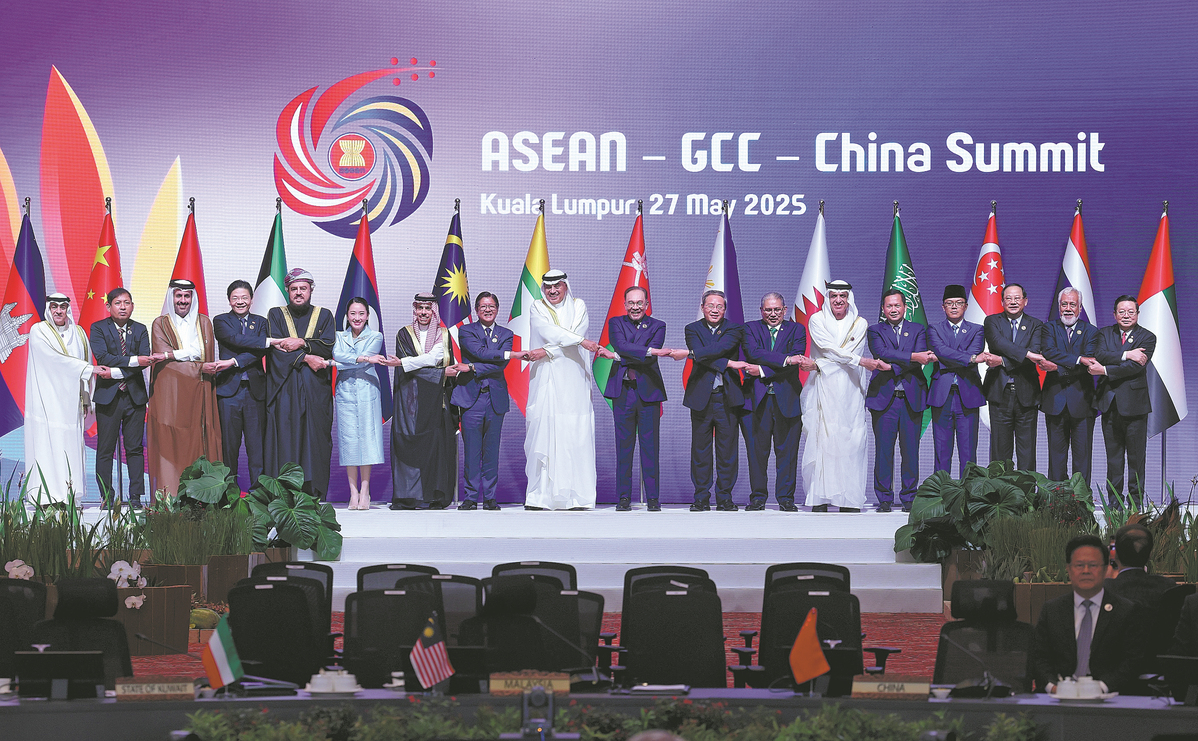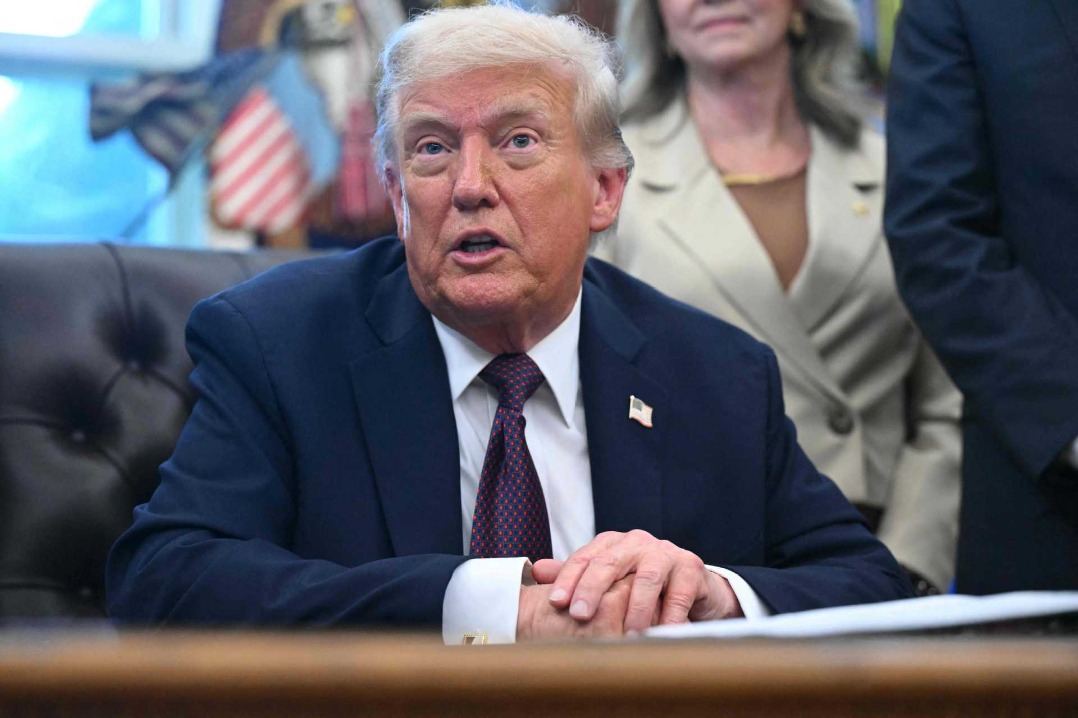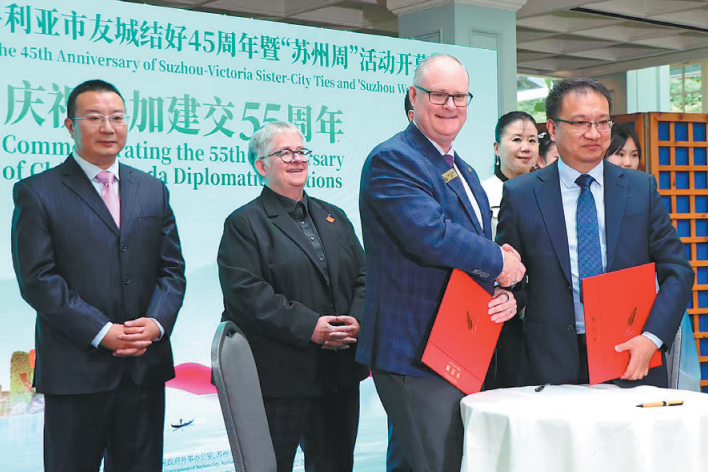Li urges enhanced trilateral cooperation
Summit hailed as significant step in advancing ties


Premier Li Qiang called on Tuesday for further deepening strategic alignment and expanding regional opening-up among China, the Association of Southeast Asian Nations and the Gulf Cooperation Council, in order to address new challenges and fully unleash the potential of open development.
Addressing the inaugural ASEAN-GCC-China Summit, Li urged the three parties to build the related regions into a large shared market where resources, technologies and talent flow more efficiently, and trade and investment enjoy greater freedom and convenience.
The summit, themed "Synergising Economic Opportunities Towards Shared Prosperity", was hosted by Malaysia in Kuala Lumpur as part of its 2025 ASEAN chairmanship.
At a time when global political dynamics are becoming increasingly complex and global economic growth remains sluggish, Li described the trilateral summit as a significant innovation in regional economic collaboration and a response to the call of the times.
He called for closer connectivity and cooperation among all parties to promote their respective economic prosperity and contribute to peace and development in Asia and beyond.
As three major economic entities with significant influence in Asia, the combined economic output of China, ASEAN member states and GCC economies now approaches $25 trillion, with a total population exceeding 2 billion. China is the GCC's largest trading partner, and it is also ASEAN's largest trading partner and vice versa.
In his speech, Li emphasized the need to enrich the substance of trilateral cooperation and work together to establish a model of global development that is characterized by openness across regions, cooperation across development stages and integration across civilizations.
He reaffirmed China's readiness to strengthen partnerships with ASEAN and the GCC by jointly formulating an action plan on high-quality Belt and Road cooperation and enhancing infrastructure connectivity.
China is also willing to expand cooperation in areas such as energy, agriculture, artificial intelligence, the digital economy, and green and low-carbon development, while promoting greater people-to-people exchanges, he added.
Li underscored the importance of enhanced communication and coordination in multilateral affairs to advance a global governance system that is more just and equitable.
Leaders at the summit highly commended the significance of trilateral cooperation in fostering development and promoting regional prosperity and stability, saying that it has ushered in a new chapter in addressing shared challenges and pursuing common development.
They expressed their commitment to fostering robust, inclusive and sustainable development, and to building a community with a shared future for all.
Experts said the historic trilateral meeting underscores the growing strength and solidarity among Asian countries, offering a new model for cross-regional cooperation. The partnership generates a synergistic effect — where the whole is greater than the sum of its parts — and brings new stability and growth momentum to the Global South, with potential global impact.
"By combining technology, resources and capital, the three parties aim to integrate industrial and supply chains, optimize regional resource allocation and reduce dependence on single markets, thereby enhancing resilience through diversified cooperation," said Du Lan, deputy director of the China Institute of International Studies' Department for Asia-Pacific Studies.
"Joint infrastructure development will reinforce Asia's connectivity, while collaboration in green energy, the digital economy and advanced manufacturing will accelerate sustainable growth," she added.
Chen Hong, executive director of Asia Pacific Studies Centre at East China Normal University, said that in the face of rising unilateralism and protectionism, the three sides advocate openness, inclusiveness and nonconfrontation, sending a strong signal of support for free trade and open cooperation.
"This stands in stark contrast to Western hegemonic practices and presents a constructive 'Asian solution' to an increasingly turbulent global landscape," he said.
As the three parties all play key roles in the Global South, deeper strategic trilateral cooperation will also help advance reforms in international economic and trade rules, while amplifying the representation and voice of developing countries within multilateral mechanisms, Chen added.
- Chinese premier calls for forging example of openness, development cooperation with ASEAN, GCC
- China ready to expand economic, trade cooperation with Cambodia -- premier
- Summit seen as key for Global South
- Xi signs order on protection of military industrial facilities
- China fully prepared for external shocks, premier tells enterprises
































